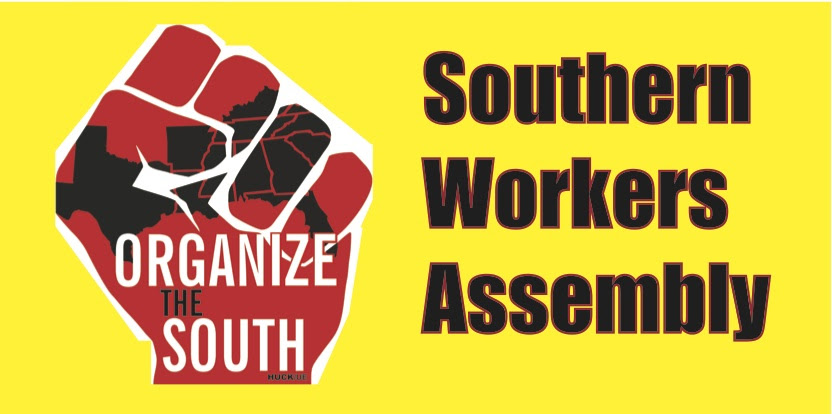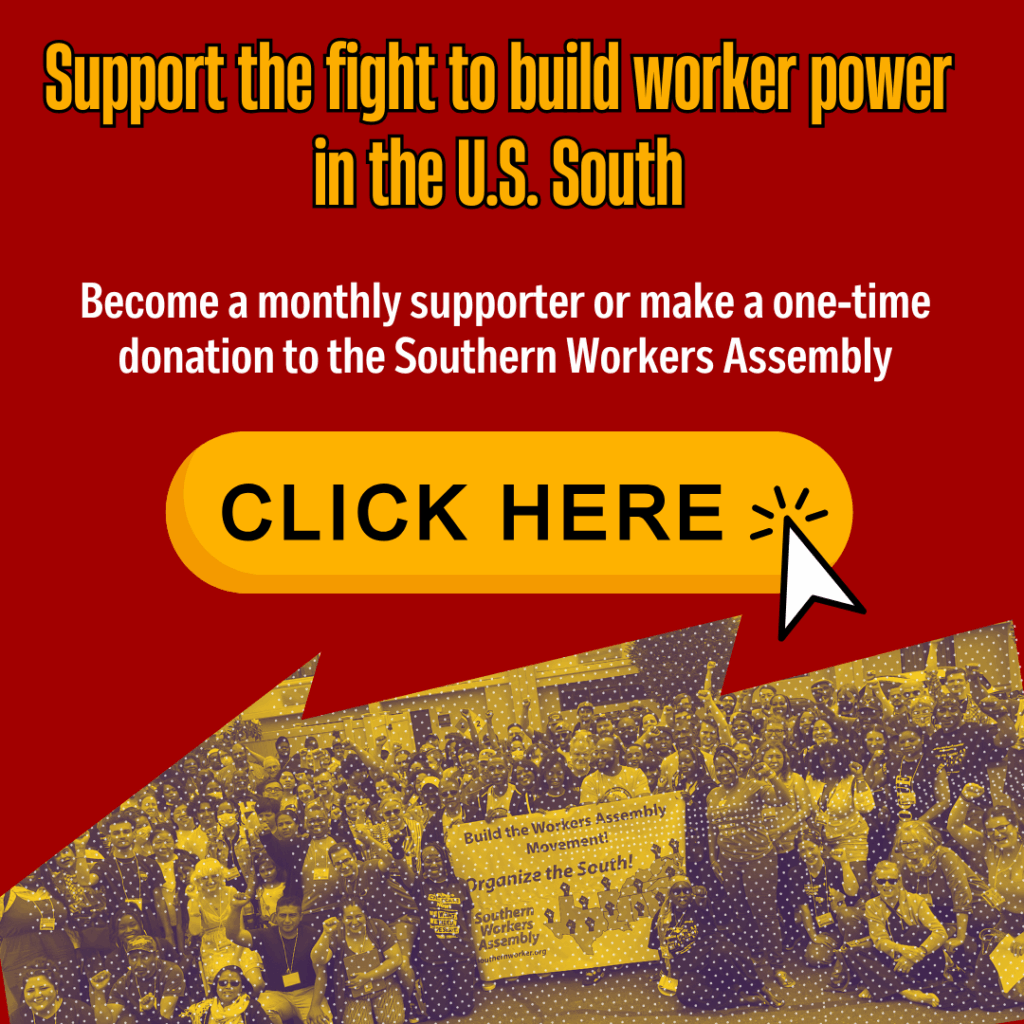By Dante Strobino on January 22, 2013

UE 150, firefighter association, Charlotte Central Labor Council members and community supporters gather in Charlotte city council lobby Jan. 14. Photo: UE 150
The City Council in Charlotte, N.C., voted 6-5 on Jan. 14 to approve payroll dues deduction for all five city worker unions with no membership restrictions. Charlotte will join three other North Carolina cities, Raleigh, Durham and Chapel Hill, in granting this right to municipal employee organizations. North Carolina is the least unionized state in the country, with less than 2.9 percent union membership.
The right to collective bargaining for public workers is still banned by General Statute 95-98, yet both state and federal constitutions affirm that workers do have the right to join a union.
“This vote shows they recognize the union, and the union’s here,” says James “Al” Locklear, a sanitation worker and president of the United Electrical Workers Local 150, the Charlotte City Workers chapter. “The next step is to get organized. Now is the time to fight for better pay and treatment.”
Charlotte is where the 1959 ban on collective bargaining originated, because of the bankers’ fear of organized — largely African-American — city workers, including firefighters. The city has been deemed by activists as “the Wall Street of the South,” since it is home to Bank of America headquarters and the East Coast operational center of Wells Fargo.
It is important to note that at the opening of the 2013 legislative session, during House Speaker Thom Tillis’ (R) speech to lawmakers, he said he intends to protect right-to-work-for-less and keep North Carolina the least unionized state — to great applause in a chamber where Republicans gained a veto-proof majority in the 2012 election. The pro-big-business and Duke-Energy puppet, former Charlotte Mayor Pat McCrory, was just elected governor in November.
Victory after decades of organizing
At the same time that workers’ rights are getting slashed all over the country and Michigan recently became a “right-to-work-for-less” state, Charlotte city workers impressively won this important victory. The historic win comes after decades of organizing in the South. The Rev. Dr. Martin Luther King Jr. was assassinated on April 4, 1968, while standing with striking sanitation workers in Memphis, Tenn., fighting for the right to collectively bargain.
The N.C. Public Service Workers Union, UE 150, began organizing city workers in Charlotte over six years ago, and has helped defend against privatization, unjust terminations and much more. The International Association of Firefighters local also played a critical role in winning this victory.
During the month leading up to the Democratic National Convention in August, UE 150 and the Charlotte City Workers chapter, assisted by many community activists including the Coalition to March on Wall Street South, organized weekly pickets in front of the City Council. They demanded payroll dues deduction and passage of a City Workers Bill of Rights.
City workers were then forced to work seven days a week for 10-14 hours a day during the DNC and were banned from wearing their city uniforms at City Council meetings. However, many courageous workers defied this attempt to silence their voices and did attend the rallies and spoke out at the City Council.
On Sept. 3, Labor Day and the opening day of the DNC in Charlotte, UE, the Food and Commerical Workers union, the Farm Labor Organizing Committee and other labor unions hosted a Southern Workers Assembly. There, rank-and-file workers from across the South spoke out about right-to-work-for-less laws and difficulties in organizing. These actions helped draw international attention to the struggle of Charlotte city workers and forced the City Council to officially begin discussing the workers’ demands, including payroll deduction.


